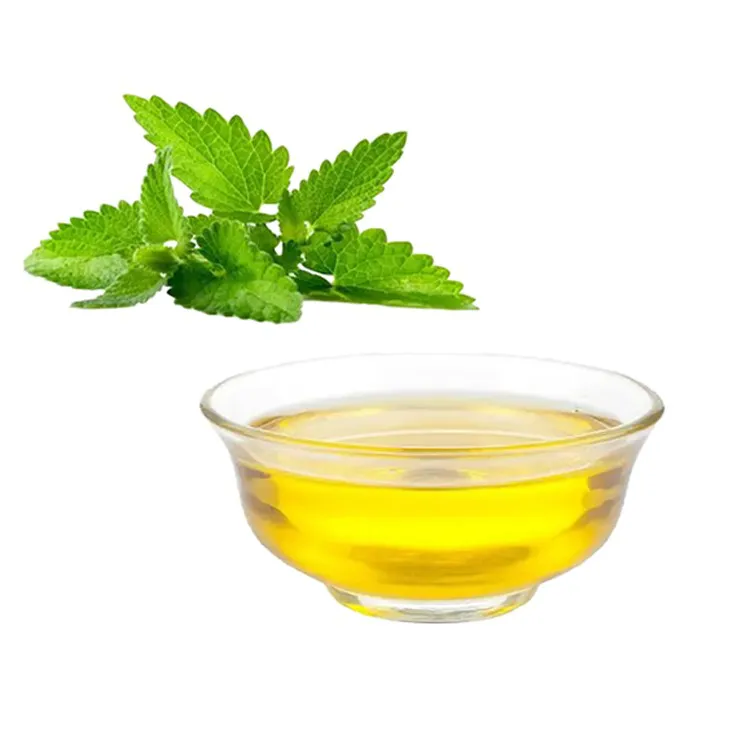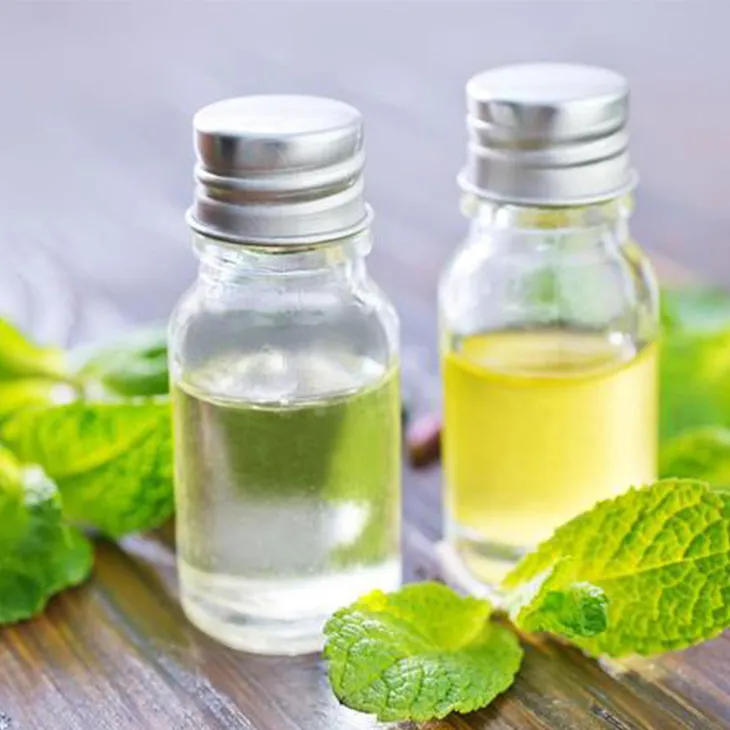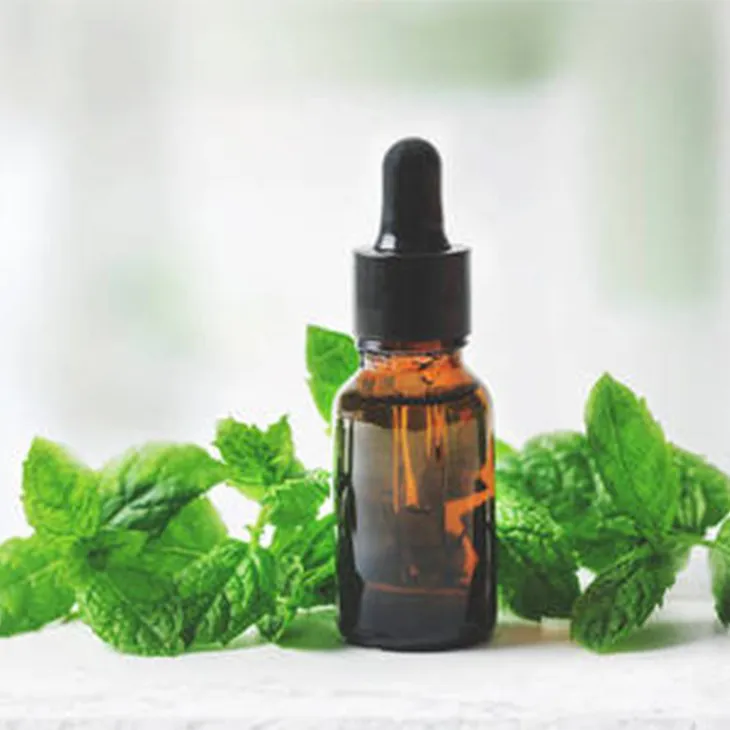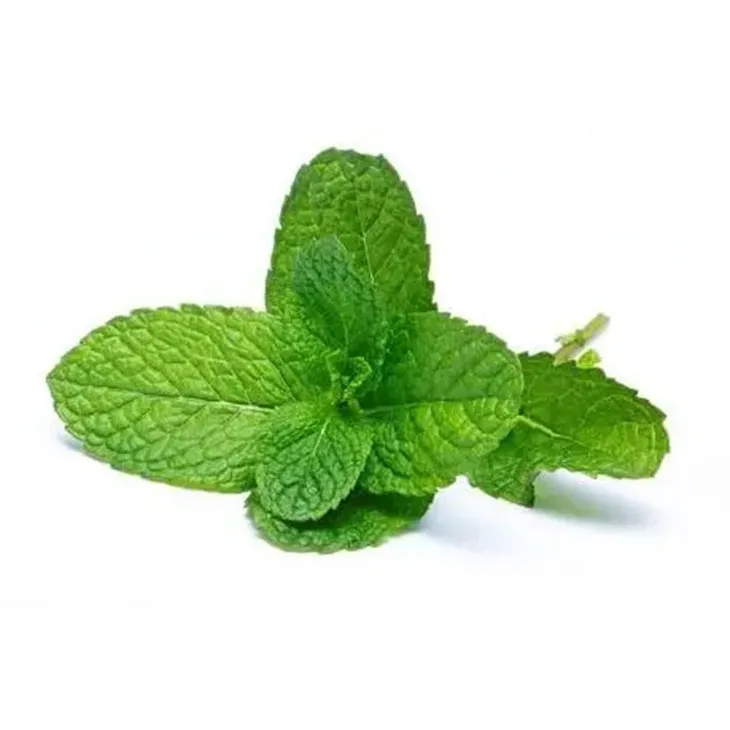- 0086-571-85302990
- sales@greenskybio.com
The most highly - praised peppermint oil.
2024-11-29

Introduction
Peppermint Oil has long been a staple in various industries, from health and wellness to cosmetics and household products. It is renowned for its distinct minty aroma and a wide range of beneficial properties. However, not all Peppermint Oils are created equal. There are certain Peppermint Oils that receive the highest praise in the market. In this article, we will explore in detail what sets these most highly - praised peppermint oils apart from the rest.

The Importance of the Source: Peppermint Plants
The origin and quality of the peppermint plants used in the production of peppermint oil are of utmost importance. High - quality plants are the foundation for creating an excellent peppermint oil.
1. Ideal Growing Conditions
Peppermint plants thrive in specific environmental conditions. They prefer well - drained soil that is rich in organic matter. The right amount of sunlight and water is also crucial. For example, peppermint plants usually grow best in areas with partial shade, receiving around 4 - 6 hours of sunlight per day. Adequate water supply, but not over - watering, helps the plants develop healthy foliage and roots. When peppermint plants are grown in these ideal conditions, they are more likely to produce a higher quantity and better quality of essential oils.
2. Selecting the Right Varieties
There are different varieties of peppermint plants, and some are more suitable for oil production than others. For instance, Mentha piperita is one of the most commonly used varieties for peppermint oil production. This variety is known for its high menthol content, which is a key component contributing to the characteristic aroma and therapeutic effects of peppermint oil. Selecting the appropriate variety ensures that the resulting oil will have the desired properties.

Extraction Methods: Preserving the Essence
The method used to extract peppermint oil from the plants significantly impacts its quality and properties. Steam distillation is a widely recognized and preferred method for several reasons.
1. How Steam Distillation Works
Steam distillation involves passing steam through the peppermint plants. The steam helps to release the essential oils from the plant cells. As the steam and the released oils rise, they are then condensed back into a liquid form. This process is gentle enough to preserve the natural properties of the peppermint oil. It helps to retain the delicate balance of compounds such as menthol, menthone, and other volatile components that contribute to the oil's aroma and therapeutic benefits.
2. Comparison with Other Extraction Methods
There are other extraction methods available, such as solvent extraction. However, solvent extraction may introduce residues of the solvents used, which can be harmful or affect the purity of the oil. In contrast, steam distillation is a more natural and pure way of obtaining peppermint oil. Another method, cold - pressed extraction, is mainly used for citrus oils and is not as suitable for peppermint oil as steam distillation. Steam distillation has been proven over time to be the most effective method for extracting high - quality peppermint oil.

The Aroma: A Signature Feature
The most highly - rated peppermint oils are characterized by their strong and refreshing minty aroma. This aroma is not only a delight to the senses but also an indicator of the oil's quality and potential uses.
1. Chemical Compounds Behind the Aroma
The minty aroma of peppermint oil is mainly due to the presence of menthol, which can account for up to 40 - 50% of the total oil composition. Menthol has a cooling and refreshing effect on the olfactory receptors. Along with menthol, other compounds such as menthone, eucalyptol, and limonene also contribute to the complex and unique aroma of peppermint oil. These compounds work in harmony to create an aroma that is instantly recognizable and highly appealing.
2. Aroma and Quality Assurance
A pure and strong minty aroma is often a sign of a high - quality peppermint oil. If the aroma is weak or has off - notes, it could indicate that the oil is of inferior quality, perhaps due to poor - quality plants or improper extraction methods. The aroma can also be used to detect any adulteration. A high - quality peppermint oil should have a consistent and characteristic aroma that remains stable over time.

Therapeutic Effects: More Than Just a Pleasant Scent
The most highly - praised peppermint oils are valued for their numerous therapeutic effects. These effects have been recognized in both traditional medicine and modern scientific research.
1. Headache Relief
Peppermint oil has been shown to be effective in relieving headaches. When applied topically, usually diluted with a carrier oil such as coconut oil, to the temples and forehead, it can provide a cooling and soothing effect. The menthol in the oil helps to dilate blood vessels, which may reduce the pain associated with headaches. Some studies have also suggested that inhaling the aroma of peppermint oil can have a similar effect, possibly through its interaction with the nervous system.
2. Digestive Aid
Peppermint oil is well - known for its ability to soothe digestive issues. It can help relieve symptoms such as indigestion, bloating, and stomach cramps. The oil has a relaxing effect on the muscles of the gastrointestinal tract. It can be taken internally in small amounts, usually in the form of enteric - coated capsules, to ensure that it reaches the intestines without being broken down in the stomach. Additionally, drinking peppermint tea, which contains peppermint oil, can also be beneficial for digestion.
3. Natural Insect Repellent
Another useful property of peppermint oil is its ability to act as a natural insect repellent. The strong aroma of the oil is unappealing to many insects, including mosquitoes, ants, and spiders. It can be used in a variety of ways to keep insects at bay. For example, a few drops of peppermint oil can be added to a spray bottle filled with water and used to spray around windows, doors, and other areas where insects may enter. It can also be used on the skin, although it should be diluted first to avoid irritation.
Peppermint Oil in Aromatherapy
In the field of aromatherapy, the most highly - rated peppermint oils play a significant role due to their various beneficial effects on the mind and body.
1. Stress Reduction
The aroma of peppermint oil has a calming effect on the nervous system. When inhaled, it can help reduce stress and anxiety. It promotes relaxation and can improve the overall mood. Aromatherapy sessions using peppermint oil can be as simple as adding a few drops to a diffuser and breathing in the aroma in a quiet and comfortable environment.
2. Improved Focus
Peppermint oil is also believed to enhance focus and concentration. The refreshing aroma can stimulate the mind and increase alertness. This makes it a popular choice for those who need to stay focused during work or study. Some people like to apply a diluted form of peppermint oil to their wrists or temples when they need an extra boost of concentration.
Conclusion
The most highly - praised peppermint oils are those that come from high - quality peppermint plants, are extracted using proper methods like steam distillation, and possess a strong and refreshing minty aroma along with a wide range of therapeutic effects. Whether it is for relieving headaches, soothing digestive problems, repelling insects, or enhancing well - being through aromatherapy, these peppermint oils have proven to be valuable assets. As the demand for natural and effective products continues to grow, the importance of high - quality peppermint oil will only increase, and understanding what makes it so special will help consumers make more informed choices.
FAQ:
What makes a peppermint oil highly - rated?
The quality of the peppermint plants used in production and the extraction method are two key factors. High - quality plants grown in ideal conditions produce a more potent and pure oil. Steam distillation, as an extraction method, helps preserve the natural properties of the oil.
What are the therapeutic effects of the most highly - rated peppermint oils?
They can be used for relieving headaches, soothing digestive issues, and acting as a natural insect repellent. In aromatherapy, they are highly regarded for reducing stress and improving focus.
Why is the aroma of highly - rated peppermint oils important?
The strong and refreshing minty aroma is not only pleasant but also has various therapeutic effects.
What is the preferred extraction method for high - quality peppermint oil?
Steam distillation is a preferred method as it helps preserve the natural properties of the oil.
How can highly - rated peppermint oils be used in daily life?
They can be used to relieve headaches, soothe digestive problems, repel insects, reduce stress and improve focus in daily life.
Related literature
- The Benefits of Peppermint Oil: A Comprehensive Review"
- "Peppermint Oil: Quality Assessment and Therapeutic Applications"
- "Extraction Methods and Quality of Peppermint Oil: An In - depth Study"
- ▶ Hesperidin
- ▶ Citrus Bioflavonoids
- ▶ Plant Extract
- ▶ lycopene
- ▶ Diosmin
- ▶ Grape seed extract
- ▶ Sea buckthorn Juice Powder
- ▶ Fruit Juice Powder
- ▶ Hops Extract
- ▶ Artichoke Extract
- ▶ Mushroom extract
- ▶ Astaxanthin
- ▶ Green Tea Extract
- ▶ Curcumin
- ▶ Horse Chestnut Extract
- ▶ Other Product
- ▶ Boswellia Serrata Extract
- ▶ Resveratrol
- ▶ Marigold Extract
- ▶ Grape Leaf Extract
- ▶ New Product
- ▶ Aminolevulinic acid
- ▶ Cranberry Extract
- ▶ Red Yeast Rice
- ▶ Red Wine Extract
-
Yohimbine Bark Extract
2024-11-29
-
Acerola Juice Powder
2024-11-29
-
Longan Extract
2024-11-29
-
Scutellaria Extract
2024-11-29
-
Sophora Japonica Flower Extract
2024-11-29
-
Panax Ginseng Leaf Extract
2024-11-29
-
Okra Extract
2024-11-29
-
Giant Knotweed Extract
2024-11-29
-
Red Vine Extract
2024-11-29
-
Phellodendron Extract
2024-11-29





















